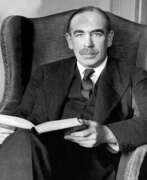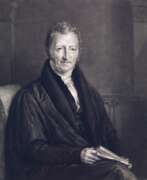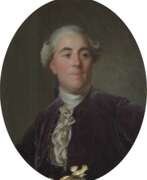Economists 19th century
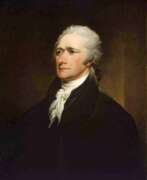

Alexander Hamilton was an American politician and statesman, the founder of the American financial system.
A native of Great Britain, Hamilton arrived in continental America in late 1772 and enrolled at King's College in New York. He became captain of an artillery company in 1776 and fought in the battles of Kips Bay, White Plains, Trenton, and Princeton during the American War of Independence. For four years he served on George Washington's staff as adjutant with the rank of lieutenant colonel. And in 1782, Hamilton was chosen by New York as a delegate to the Confederate Congress.
Alexander Hamilton was also one of New York's delegates to the Constitutional Convention in Philadelphia in 1787. He was a passionate advocate of the Constitution and, along with future President James Madison and John Jay, contributed to the famous book The Federalist (1788), writing most of the essays for it. After George Washington was elected the nation's first president in 1789, he appointed Hamilton Secretary of the Treasury. As the first Secretary of the Treasury (1789-1795), Hamilton developed plans to finance the national debt, secure federal credit, encourage the expansion of manufacturing, and organize a federal bank. In 1801, Hamilton founded the New York Evening Post newspaper.
On July 11, 1804, Hamilton was mortally wounded in a duel with his personal and political rival, Vice President Aaron Burr. Today, Alexander Hamilton is revered as one of the founding fathers of the United States, he is known for his role in creating America's financial system, and his portrait is on the ten dollar bill.
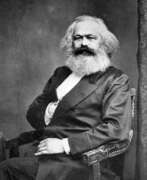

Karl Marx, full name Karl Heinrich Marx, was a German philosopher, sociologist, historian and economist, social activist, and journalist. One of the most significant political figures in the world, his works have had a great influence on the course of human history.
Karl Heinrich Marx was born into a large Jewish family of rabbinic dynasty, but his father and Karl himself were baptized. The young Karl received a liberal arts education at the University of Bonn and the University of Berlin and was actively involved in the turbulent political life of Germany and France in the 19th century. For his political activities in 1849 he was expelled from Germany, moved with his family to Paris and then to London, where he lived and worked until the end of his life.
In 1844 he met the German socialist Friedrich Engels, who became his friend and collaborator for the rest of his life. Together they had already published the Manifesto of the Communist Party (1848), the most famous pamphlet in the history of the socialist movement. Karl Marx was also the author of the movement's most important book, Das Kapital (Capital). These and other writings of Marx and Engels formed the basis of the system of views and beliefs known as Marxism.
Marx examined the very different versions of socialism that existed in the early nineteenth century and combined them into a doctrine that remained the dominant version of socialism for half a century after his death. His emphasis on the influence of economic structure on historical development was of enduring importance.
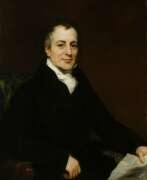

David Ricardo was a British economist and a classic of political economy.
David's father, a stockbroker, came from a Jewish family and emigrated from Holland to England in the early 1770s. After his studies, young David was hired by the London Stock Exchange and worked with his father, but at the age of 21 he broke away from his family. He soon started his own business as a dealer in government securities and became rich very quickly. At the age of 27, Ricardo became seriously interested in economics and from 1809 began to publish articles in the press on topical issues of currency and economics. He met the economist James Mill, who became his political and editorial adviser. He also befriended the utilitarian philosopher Jeremy Bentham and Thomas Malthus.
Ricardo's major work was On the Principles of Political Economy, and Taxation, published in London in 1817. It was a fundamental contribution to economic science and the first systematized approach to the subject. In this work, Ricardo addresses the "main problem of political economy," defined as determining the laws governing the "natural course of rents, profits, and wages" over time. He also develops ideas advanced in Adam Smith's The Wealth of Nations (1776), outlining a new labor theory of value, as well as theories of international competitive advantage and the effects of taxation. Ricardo was the first to formulate the "classical" system of political economy, and his ideas dominated economic thought throughout the 19th century.
By the age of 41, David Ricardo had completely retired from business and began to lead the quiet life of a gentleman and landowner on his estate. In 1819, Ricardo was elected to the British Parliament as an independent representative of a district in Ireland.
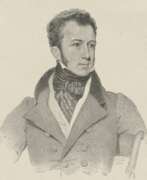

Edward Gibbon Wakefield was a politician, economist, writer and one of the British masterminds behind the colonization of Australia.
Edward was born into a respected Wakefield family in London, received a good education and served in the British Foreign Office. However, he was convicted for a marriage adventure and, sitting in prison, thought out a policy of colonization of Australia and New Zealand. In 1929, Wakefield published "An Outline of a Proposal for the Colonization of Australasia" and then published "A Letter from Sydney: the Chief City of Australia" on behalf of a certain expert on Australia. He proposed a scheme now sometimes called the Wakefield Scheme: it was aimed at settling the new colony of South Australia with able-bodied laborers, traders, artisans, and representatives of capital. It was to be financed by the sale of land to capitalists, who would thereby support other classes of emigrants. The colony was founded on December 28, 1836.
Wakefield was also the inspiration for the Durham Report (1839) on Canadian colonial policy. Wakefield subsequently created the blueprint for the Church of England settlement, Canterbury, on the South Island of New Zealand. From 1847 to 1850 the bulk of the "Canterbury Pilgrims" emigrated there, and in 1853 Wakefield became a member of the New Zealand General Assembly.
